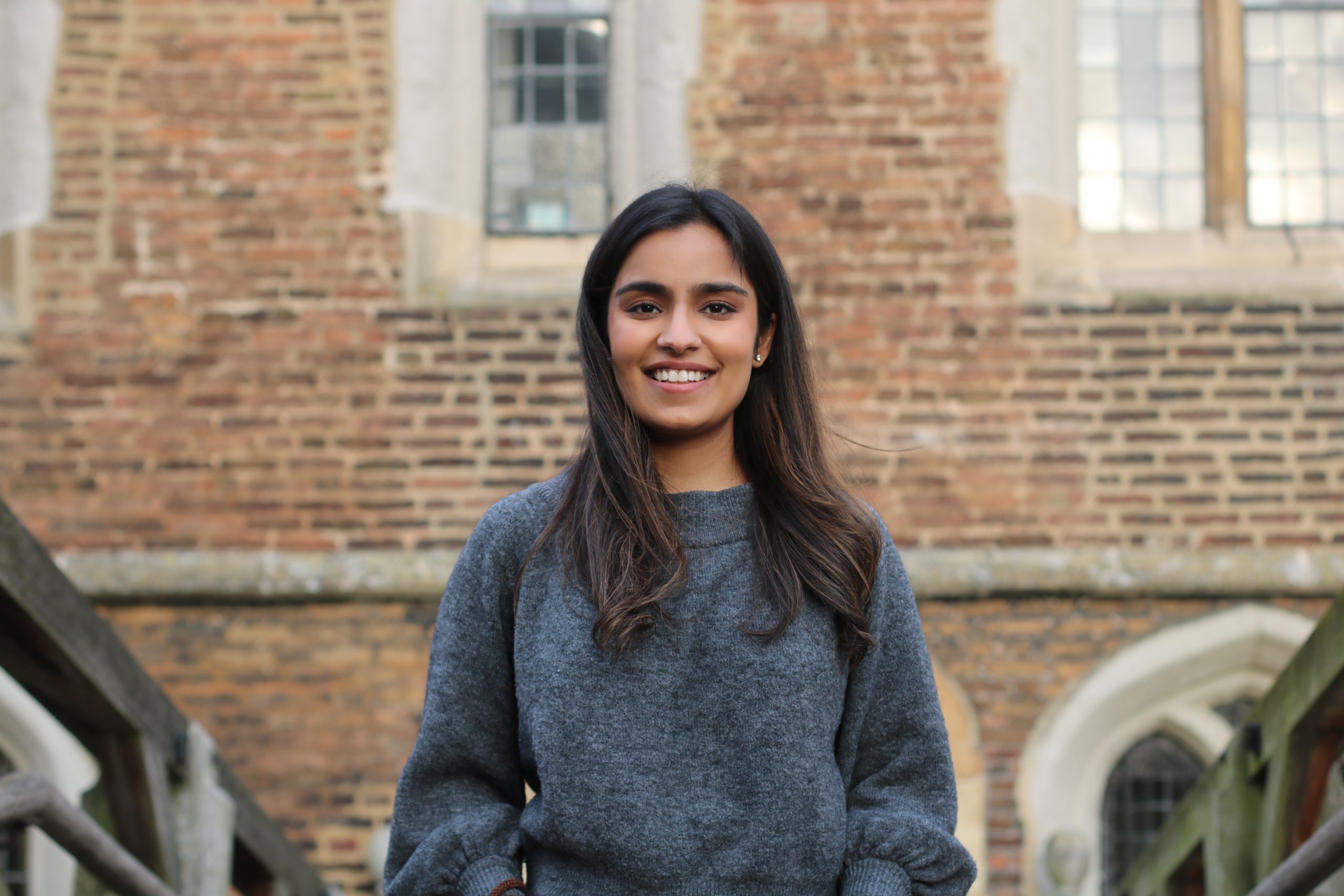
Mishika Mehrotra speaks about her research on how parent-child conversations at home influence children’s ability to self-regulate.
Before she started her PhD, Mishika Mehrotra [2021] was working as an Instructor Therapist with children with autism. Her role involved implementing a behavioural therapy programme for the children, who were non-verbal.
The programme led to an improvement in the children’s language and academic abilities, their ability to take care of themselves, to communicate via an ipad and to regulate their emotions. “It was very rewarding and one of the best experiences of my life,” she says. “I formed very close bonds with the children and their families.”
It also showed her the power of research to make a tangible difference to people’s lives.
Mishika had previously been interested in a career in clinical psychology and had volunteered at a crisis distress helpline for people with mental health problems where she was trained to provide solution-focused therapy. That marked a turning point for her. She realised that she wanted to help people, but that clinical work was not the right fit for her because she found it difficult to switch off.
She believes that her research can improve people’s lives and enable her to help more people. Her PhD focuses on how parent-child conversations at home influence children’s ability to self-regulate their emotions and behaviour.
The road to psychology
Mishika was born and raised in India and spent most of her life in Delhi until she graduated from high school.
Her father is a baker and her mother works with him. Mishika was very studious as a child. She was interested in many subjects so she found it very difficult to choose which stream she should opt for in grade 12. So she decided to take the International Baccalaureate so that meant she could do a broader range of subjects, from business management, English and Spanish to biology, maths and psychology. She found psychology fascinating and was accepted to study it at the University of Toronto, starting in 2015.
She had relatives in Canada and knew it to be a welcoming and diverse place. She had originally intended to do a double major in biology and psychology, but soon decided that psychology was the field for her.
In her second year she had the opportunity to gain a course credit from working on a research project. She was particularly interested in developmental psychology and started work at Dr Tina Malti’s laboratory which studied children’s emotions around ethical issues. The first experiment she worked on looked at how children’s theory of mind related to their emotions after ethical transgressions.
In her third year she was paid to work as a research assistant and her fourth-year project was also based on tracking children’s eye movements while they watched stories about ethical transgressions, such as someone stealing chocolate. It looked at how the environmental cue that they pay attention to (for instance, the chocolate vs the person they are stealing the chocolate from) relates to their guilt after transgressions [for instance, stealing the chocolate). Half of the children felt happy to take someone else’s chocolate, even if they wouldn’t like it to happen to them or if they knew it was wrong. “They didn’t have the cognitive ability to integrate the two perspectives,” says Mishika.
In addition to her research Mishika also worked as a study abroad officer in her university’s international education centre, having herself benefited from doing a social psychology exchange programme in Frankfurt in her second year. She also took part in a field research project in the Bahamas in 2017. The project involved an investigation of coral cover and fish abundance and diversity. In 2018 Mishika did a summer programme at Worcester College, Oxford. It was an experience that led to her applying to Oxford and Cambridge in 2020.
Cambridge
At the time she applied, she had graduated and was working at Dr Malti’s laboratory as a research assistant as well as working with children with autism. The additional year also her the opportunity to decide what the focus of her PhD should be and to prepare.
She had read some of Professor Claire Hughes’ papers and was keen to focus on children’s self regulation and how their interaction with their caregiver impacts that. Professor Hughes’ work focuses on parent/child interactions and the development of children’s executive functions. Mishika contacted Professor Hughes and found that she was doing a project on children’s school readiness. Their ability to self regulate their emotions and behaviour is an important part of this and enables them to learn better and form better peer relationships. The project overlapped with Mishika’s interests so she applied for a PhD.
Her research involves monitoring recorded conversations between parents and their children during mealtimes to see how that relates to children’s ability to self-regulate. She is looking, for instance, at how responsive and semantically connected their conversations are, how much parents are talking to their children and how they respond to see how that relates to children’s ability to self-regulate. Mishika hopes it will be a longitudinal study so she can look at how the children’s behaviour changes and how easy it is to predict later outcomes in relation to children’s ability to self regulate at a young age.
She says research shows that people from a lower social background are less able to self-regulate and have lower levels of school readiness. That has a long-term impact. Mishika is interested in looking at whether there is something parents can do in terms of the way they talk to their children at home which might help to close the achievement gap between children coming from advantaged and disadvantaged families. “These problems early in life have a cascading effect going forward,” she says.












